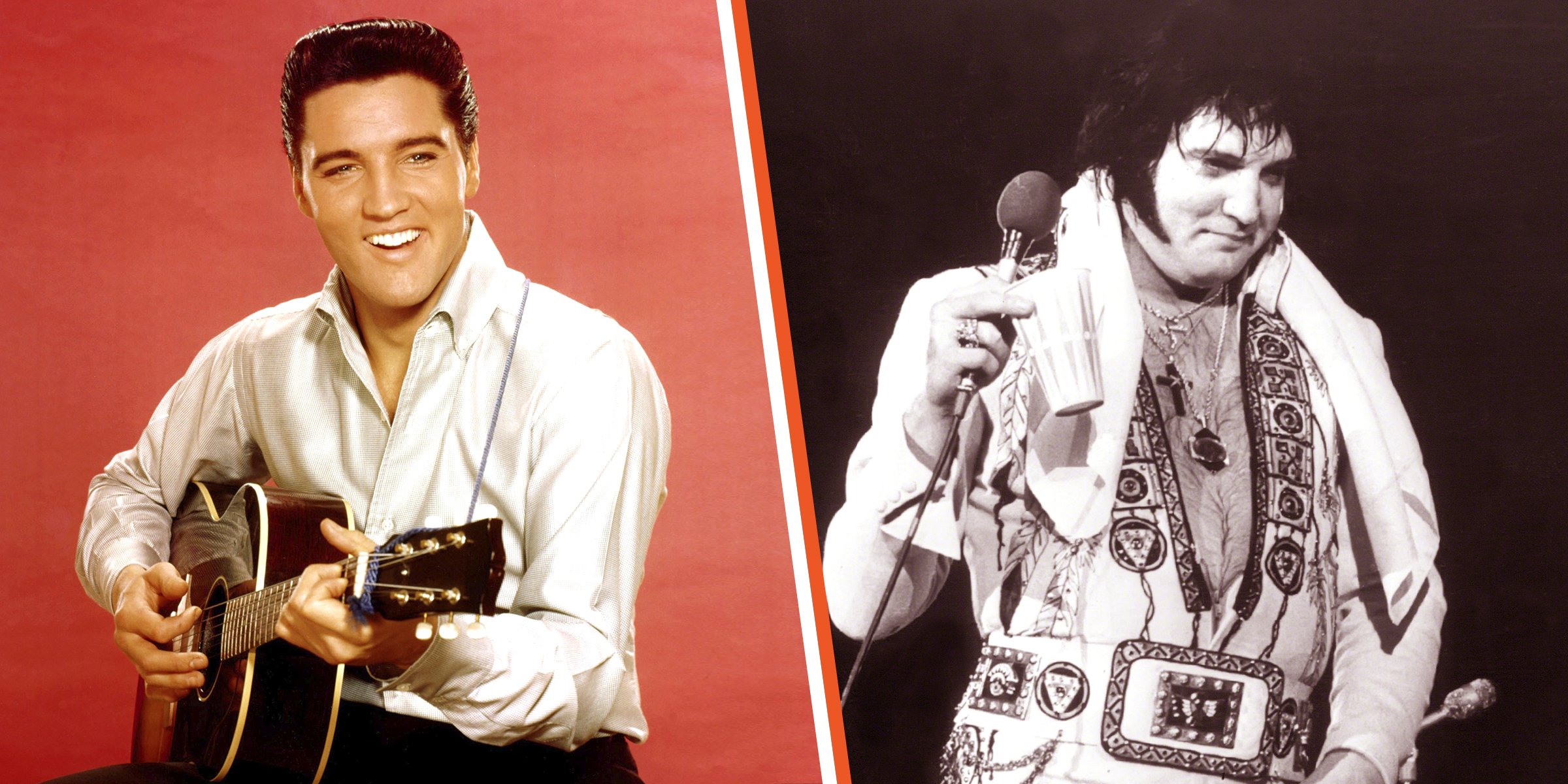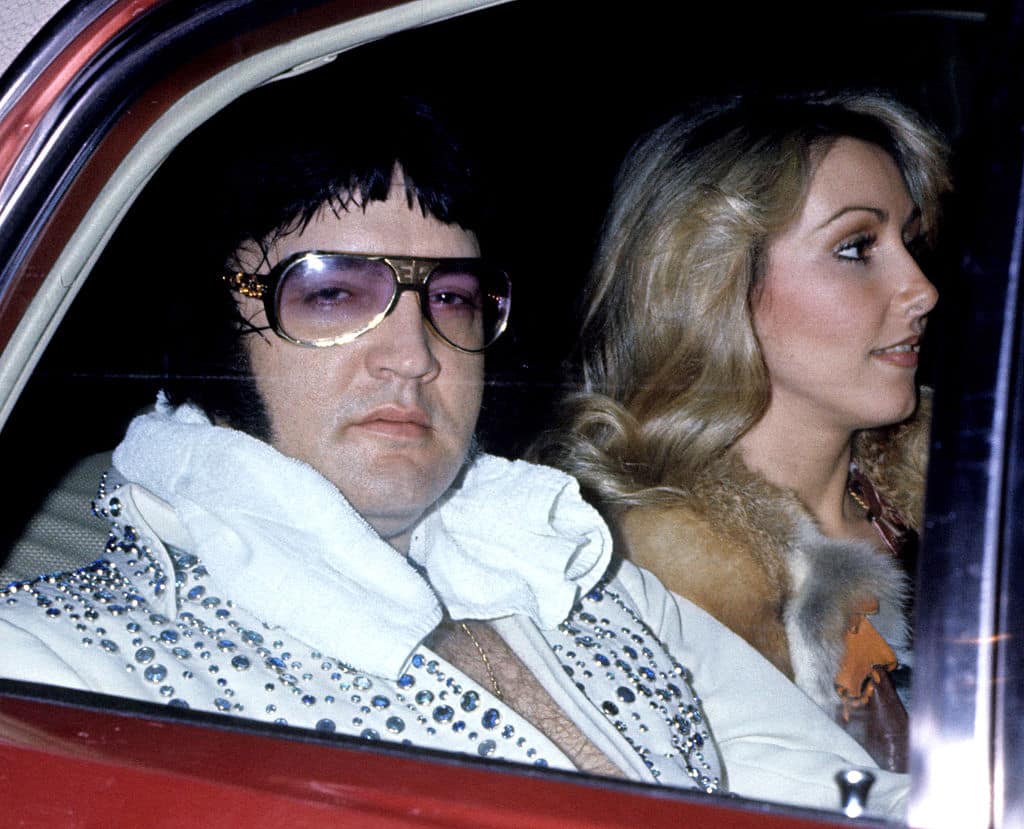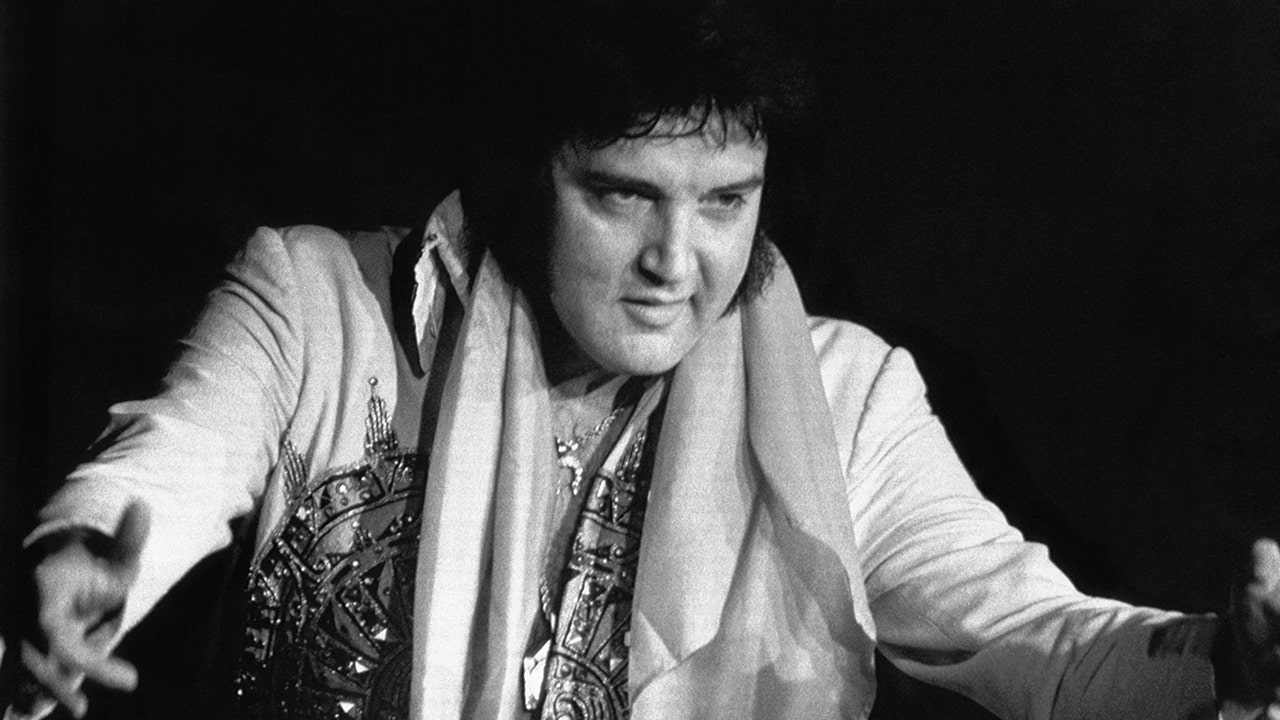"How much did Elvis weigh?" is a query that has intrigued fans and historians alike. It represents a question about the physical characteristics of one of the most iconic figures in music history, Elvis Presley.
The answer to this question provides insights into Elvis's health and lifestyle, as well as the cultural significance of his weight in the context of his career and public image. Historically, Elvis's weight has been a topic of discussion due to its fluctuations throughout his life, which have been attributed to factors such as changes in his diet, health issues, and the demands of his profession.
This article will delve into the details of Elvis Presley's weight, examining its relevance, the factors that influenced its changes, and the cultural implications of his physical appearance.
How Much Did Elvis Weigh?
Elvis Presley's weight has been a topic of fascination for decades, providing insights into his health, lifestyle, and cultural significance. Exploring the key aspects of this topic allows us to understand the complexities surrounding Elvis's weight and its impact on his life and career.
- Health
- Diet
- Lifestyle
- Cultural Impact
- Career Demands
- Personal Struggles
- Public Perception
- Medical History
Elvis's weight fluctuated throughout his life, influenced by factors such as his demanding performance schedule, unhealthy eating habits, and prescription drug use. His weight gain became a source of public concern, as his health declined in his later years. Despite his struggles with weight management, Elvis remains an iconic figure whose weight has become a part of his legacy.
|Name|Birthdate|Birth Place|Died|Death Place|Occupation||-|-|-|-|-|-||Elvis Presley|January 8, 1935|Tupelo, Mississippi, U.S.|August 16, 1977|Memphis, Tennessee, U.S.|Singer, actor
Health
Elvis Presley's health was closely intertwined with his weight. His unhealthy diet, prescription drug use, and demanding performance schedule contributed to weight gain and various health issues. The connection between health and weight is a complex one, involving both physical and psychological factors.
Elvis's weight gain put him at risk for obesity-related health problems, such as high blood pressure, heart disease, and diabetes. His unhealthy diet, which was high in fat and calories, contributed to his weight gain and poor health. He also had a history of prescription drug abuse, which can lead to weight gain as a side effect.
The demands of Elvis's career also took a toll on his health. He often performed multiple shows per day, which left him exhausted and with little time to eat healthy or exercise. The stress of his career may have also contributed to his unhealthy eating habits and weight gain.
Elvis's weight gain and health problems had a significant impact on his career and personal life. His weight gain made it difficult for him to perform on stage and contributed to his declining health. He eventually died at the age of 42 from a heart attack, which was likely related to his weight and health problems.
Diet
Elvis Presley's diet played a significant role in his weight gain and overall health. He was known for his love of unhealthy foods, such as fried chicken, hamburgers, and mashed potatoes. He also had a sweet tooth and often indulged in sugary snacks and desserts.
Elvis's unhealthy diet contributed to his weight gain and various health problems, such as high blood pressure, heart disease, and diabetes. His diet was high in fat, calories, and sugar, which led to weight gain and increased his risk for obesity-related health problems.
In addition to his unhealthy diet, Elvis also had a history of prescription drug abuse, which can lead to weight gain as a side effect. The combination of his unhealthy diet and prescription drug use contributed to his weight gain and declining health.
Elvis's weight gain and health problems had a significant impact on his career and personal life. His weight gain made it difficult for him to perform on stage and contributed to his declining health. He eventually died at the age of 42 from a heart attack, which was likely related to his weight and health problems.
Lifestyle
Elvis Presley's lifestyle had a significant impact on his weight and overall health. His demanding career, unhealthy diet, and prescription drug use all contributed to his weight gain and declining health.
- Career Demands
Elvis's demanding career schedule, which included multiple shows per day, left him with little time to eat healthy or exercise. The stress of his career may have also contributed to his unhealthy eating habits and weight gain.
- Unhealthy Diet
Elvis was known for his love of unhealthy foods, such as fried chicken, hamburgers, and mashed potatoes. He also had a sweet tooth and often indulged in sugary snacks and desserts. His unhealthy diet contributed to his weight gain and various health problems, such as high blood pressure, heart disease, and diabetes.
- Prescription Drug Use
Elvis had a history of prescription drug abuse, which can lead to weight gain as a side effect. The combination of his unhealthy diet and prescription drug use contributed to his weight gain and declining health.
- Personal Struggles
Elvis faced a number of personal struggles throughout his life, including the death of his mother, divorce, and financial problems. These personal struggles may have contributed to his unhealthy eating habits and weight gain.
Elvis's lifestyle choices had a significant impact on his weight and overall health. His demanding career, unhealthy diet, and prescription drug use all contributed to his weight gain and declining health. It is important to make healthy lifestyle choices in order to maintain a healthy weight and reduce the risk of obesity-related health problems.
Cultural Impact
The cultural impact of Elvis Presley's weight is a fascinating topic that sheds light on the complex relationship between celebrity, body image, and cultural values. Elvis's weight was a constant source of public fascination and scrutiny, and it played a significant role in shaping his image and legacy.
In the early days of his career, Elvis's weight was seen as a sign of his virility and sex appeal. He was often photographed shirtless, and his physique was celebrated in the media. However, as Elvis's weight increased in the later years of his career, it became a source of public concern. He was often ridiculed in the media, and his weight gain was seen as a sign of decline.
Elvis's weight gain had a significant impact on his career. He became less mobile on stage, and his performances suffered. His weight gain also contributed to his declining health, and he died at the age of 42 from a heart attack.
The cultural impact of Elvis's weight is a reminder of the complex relationship between celebrity, body image, and cultural values. Elvis's weight was a source of both fascination and scrutiny, and it played a significant role in shaping his image and legacy.
Career Demands
Elvis Presley's demanding career had a significant impact on his weight and overall health. The pressures of his career, including the constant travel, rigorous performance schedule, and unhealthy eating habits, all contributed to his weight gain and declining health.
- Touring and Travel
Elvis's touring schedule was grueling. He often performed multiple shows per day, with little time to rest or eat healthy. The constant travel and lack of sleep took a toll on his health and contributed to his weight gain.
- Performance Schedule
Elvis's performance schedule was also very demanding. He often performed multiple shows per day, which left him exhausted and with little time to eat healthy or exercise. The stress of his career may have also contributed to his unhealthy eating habits and weight gain.
- Unhealthy Eating Habits
Elvis's unhealthy eating habits were another major factor in his weight gain. He was known for his love of fried foods, sugary snacks, and desserts. His unhealthy diet contributed to his weight gain and various health problems, such as high blood pressure, heart disease, and diabetes.
- Personal Struggles
Elvis faced a number of personal struggles throughout his life, including the death of his mother, divorce, and financial problems. These personal struggles may have contributed to his unhealthy eating habits and weight gain.
Elvis's career demands took a toll on his health and contributed to his weight gain and declining health. It is important to make healthy lifestyle choices in order to maintain a healthy weight and reduce the risk of obesity-related health problems.
Personal Struggles
Elvis Presley's personal struggles had a significant impact on his weight and overall health. He faced a number of challenges throughout his life, including the death of his mother, divorce, and financial problems. These personal struggles contributed to his unhealthy eating habits and weight gain.
The death of Elvis's mother in 1958 was a major turning point in his life. He was deeply affected by her death, and he began to rely on unhealthy foods for comfort. He also started to gain weight, and his health began to decline.
Elvis's divorce from Priscilla Presley in 1973 was another major personal struggle. He was deeply in love with Priscilla, and her decision to leave him devastated him. He began to eat even more unhealthy foods, and his weight continued to increase.
Elvis's financial problems also contributed to his weight gain. He spent lavishly throughout his career, and he often found himself in debt. This stress led him to eat unhealthy foods, and his weight continued to increase.
Elvis's personal struggles are a reminder of the complex relationship between mental health and physical health. When we are struggling with personal problems, it is important to seek help. There are many resources available to help us cope with stress, grief, and other challenges. If we do not seek help, our personal struggles can have a negative impact on our health.
Public Perception
Public perception played a significant role in shaping the narrative surrounding "how much did Elvis weigh." Elvis Presley's weight became a topic of public fascination and scrutiny, influencing his image, career, and legacy.
- Media Scrutiny
The media played a major role in shaping public perception of Elvis's weight. Newspapers, magazines, and television shows frequently commented on his weight, often in a critical or sensationalized manner. This media scrutiny contributed to the public's fascination with Elvis's weight and made it a topic of constant discussion.
- Fan Perception
Elvis's fans had a complex relationship with his weight. Some fans were concerned about his health, while others saw his weight as a sign of his virility and sex appeal. This dichotomy in fan perception contributed to the overall public perception of Elvis's weight.
- Cultural Context
The cultural context of the time also influenced public perception of Elvis's weight. In the 1950s and 1960s, there was a societal emphasis on thinness, especially for women. This cultural context may have contributed to the negative public perception of Elvis's weight gain in later years.
Public perception of Elvis's weight was a complex and multifaceted phenomenon that was influenced by a variety of factors. The media, fan perception, and cultural context all played a role in shaping the public's view of Elvis's weight. This public perception had a significant impact on Elvis's image, career, and legacy.
Medical History
Medical history plays a significant role in understanding "how much did Elvis weigh." Elvis Presley's weight fluctuations and health issues were closely intertwined, impacting his overall well-being, career, and public image.
Elvis's medical history provides insights into the underlying causes of his weight gain and health problems. His unhealthy diet, prescription drug use, and demanding performance schedule all contributed to his weight gain and declining health. Elvis's medical history also reveals his struggles with chronic health conditions, such as high blood pressure, heart disease, and diabetes, which were exacerbated by his unhealthy lifestyle.
Understanding Elvis's medical history helps us appreciate the complexities of his weight issues and their impact on his life. It highlights the importance of maintaining a healthy lifestyle, managing chronic health conditions, and seeking professional help when necessary. Elvis's story serves as a reminder of the potential consequences of neglecting one's health and the profound impact it can have on an individual's life.
In exploring "how much did Elvis weigh," this article has shed light on the complex interplay between his weight, health, lifestyle, and public image. Elvis's weight fluctuations were influenced by his unhealthy diet, prescription drug use, demanding performance schedule, and personal struggles. These factors contributed to his weight gain and declining health, eventually leading to his untimely death.
The article highlights the significance of maintaining a healthy lifestyle, managing chronic health conditions, and seeking professional help when necessary. Elvis's story serves as a poignant reminder of the potential consequences of neglecting one's health and the profound impact it can have on an individual's life. Understanding "how much did Elvis weigh" goes beyond mere curiosity; it offers valuable insights into the complexities of weight management, health, and the human condition.
Flo From Progressive Husband
Michael Keaton Heart Attack
Tyrod Taylor Age



ncG1vNJzZmislayurIONmqSsa16Ztqi105qjqJuVlru0vMCcnKxmk6S6cLTOsGSmrZOdeqW1w2acpa6ZqHq4scign2egpKK5